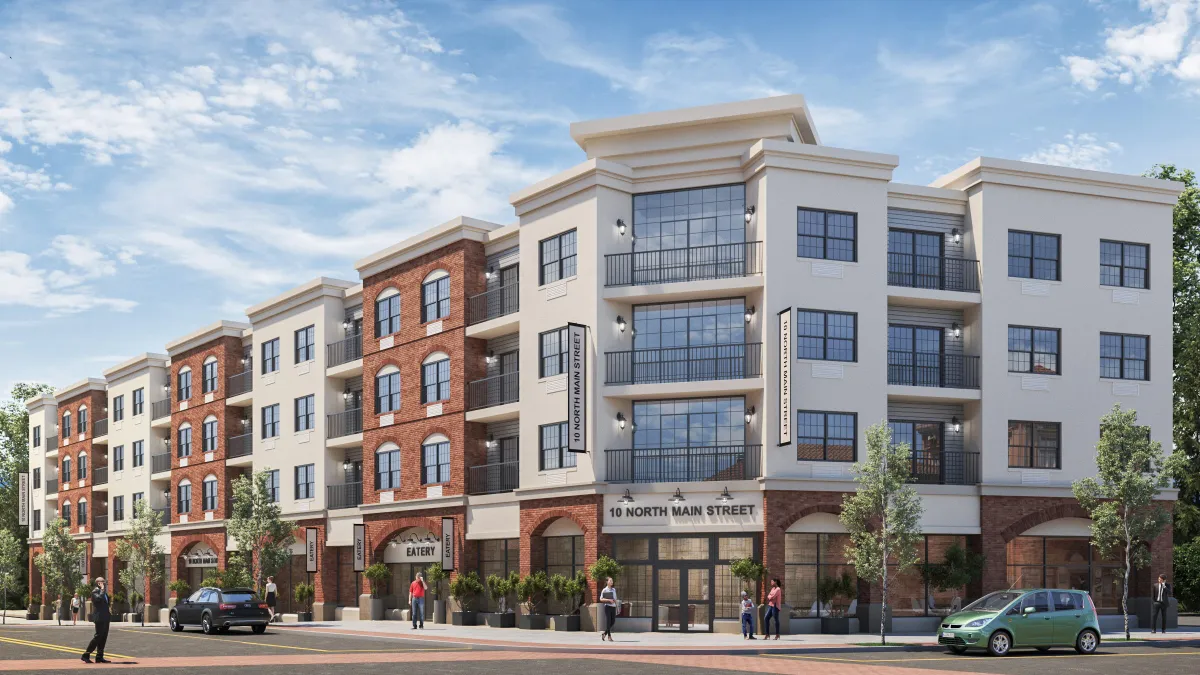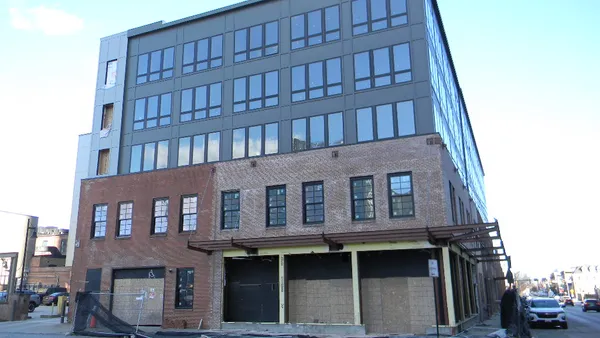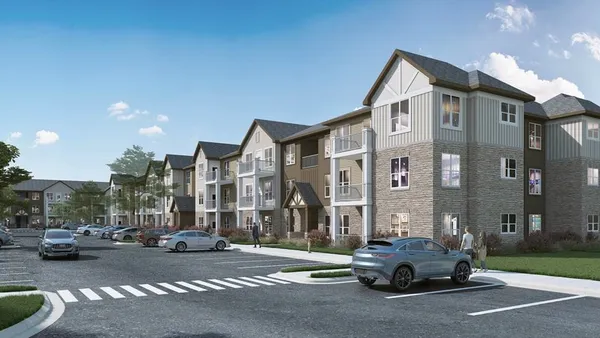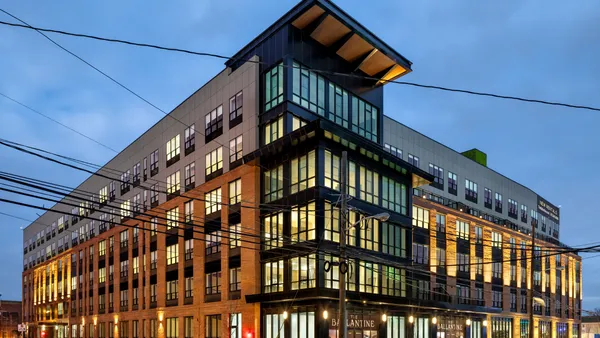You may not find CHA Partners on lists of the top developers in the country. But that doesn’t mean its work isn’t impactful.
The Bloomfield, New Jersey-based company specializes in public-private partnerships that aim to deliver developments (such as the 10 North Main project in Wharton, New Jersey, pictured above) that positively impact local communities.
“We are really working with the municipalities to come up with strategic development in downtown centers,” said William Colgan, managing partner of CHA Partners. “They have a property that has been a problem for them and they need someone to help them get over issues.”
In downtown Bloomfield, CHA developed a 224-unit project on a formerly blighted block across from the train station. In 2015, it sold the project, now known as Avalon Bloomfield Station, to Arlington, Virginia-based REIT AvalonBay Communities. In January 2021, it constructed a 176-unit project in the area. It also redeveloped the former Muhlenberg Hospital site into a mix of multifamily and medical uses. The company currently owns 300 units and has another 300 under development.
Here, Colgan talks with Multifamily Dive about managing materials costs, working with contractors and underwriting in a rising interest rate environment.
This interview has been edited for brevity and clarity.
MULTIFAMILY DIVE: What are some of the biggest challenges you’re currently facing?
WILLIAM COLGAN: One of the unique challenges taking place is that products aren’t readily available. You need a little bit more strategy with how you're approaching construction and making sure you're getting orders in the queue and also on time.
You can take something as simple as doors. You used to always have doors in stock and be able to pick them up with no problem. Now, you have to deal with a four- to six-week lead time. If you haven't thought about that earlier, you could have a few weeks' delay on a project just for something as simple as not having doors readily available. We've seen a number of those challenges, but they can be met with some upfront planning.
Has the labor climate affected getting subcontractors for your jobs?
Subcontractors may commit to the job, but there could be a lag or a material delivery issue on other projects they are doing, which puts them behind schedule. It could ultimately lead to them being unable to deploy appropriate manpower on your site. So we're definitely dealing with that across the board and trying to make sure that we're proactively communicating our scheduling expectations with subcontractors and making sure that they're committed to meeting that timeline. That’s been a big change.
Another challenge with contractors is that their material costs have gone way up from what they may have quoted earlier in a job. It's a give and take with them in order to make sure that they hold true to the pricing that was quoted as opposed to the developer eating all the costs. There is constant communication that you really need to have.
Are you actively looking at other sites right now or underwriting other projects?
We have about another 600 units that we have in the development cycle. We're actively underwriting them and trying to figure out the appropriate path forward.
How has that changed over the last couple of months with interest rate increases?
It has definitely changed. Project costs have increased on the construction side. Then as we get into financing, we always did around a 65% to 70% loan-to-cost on the projects that we wound up embarking on. With the increasing rate environment, the amount of money that banks want in interest reserve accounts, when you're underwriting projects, has increased over the past few months.
What are banks looking for now?
With the changing costs and the interest rate environment, banks are placing more of an emphasis on working with strategic partners and people that they worked with in the past and that can perform. Most of the banks we have had conversations with are a lot more nervous about working with new developers without a track record or a history of doing business with them before.
Their concerns, as they're going through underwriting, are how they would handle cost increases in the scheduling and the timeline. Then banks are also being more cautious with their interest rates and trying to make sure that they have the proper amount of funds in their interest reserve account. They're all anticipating further increases over the next couple of years. They just want to make sure proper funds are in place.
Click here to sign up to receive multifamily and apartment news like this article in your inbox every weekday.











